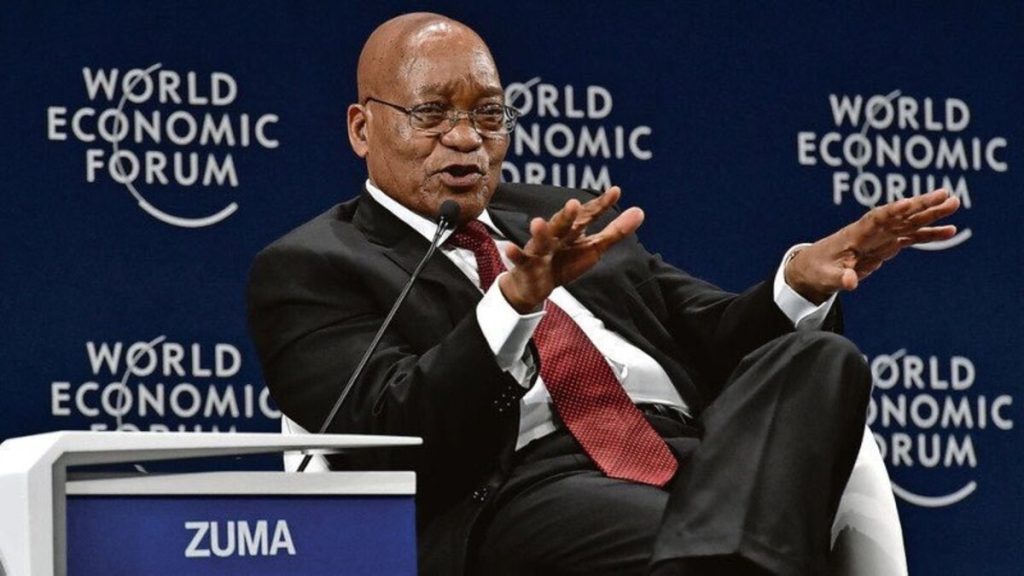Jacob Zuma is a South-African politician who presided over the affairs of the country as its fourth president from 2009 to 2018. He was born on April 12, 1942, with the tribal names Nxamalala and Msholozi and JZ, as his initials.
The 81-year old politician was imprisoned together with the great Nelson Mandela for their fight against apathy. They were jailed together with other leaders of the African National Congress (ANC) on Robben Island.
Table of Contents
Jacob Zuma: The Beginning
In 1997, Jacob Zuma was elected vice president of the African National Congress (ANC), the position which he held until he was made the president two years later.
His emergence as the ANC’s foremost leader, his campaign and keynote messages impressed millions of persons who were mostly the less-privileged. Jacob Zuma resumed office as a celebrated savior who pledged to clean things up.
The Phase of Jacob Zuma’s Presidency
Jacob Zuma assumed office in 2009 and served as the president of South Africa until 2018 when a vote of no confidence was passed on him. Throughout his administration, there were reports of political crisis and several scandalous events. Some of these were corruption scandals, internal political disagreement within the African National Congress (ANC). There were also reports of economic challenges faced by his administration.
As these could no longer be endured, the call for his resignation became the primary assignment of nearly every society including but not limited to opposition parties, civil society organizations, and even some members of his own party. This call was made a number of times while he was in office as the president.
Jacob Zuma Notable Achievements
Jacob Zuma’s administration made some significant and noteworthy accomplishments. One of the major achievements of his administration was how he was successful in the extension of social welfare programs, which was introduced to reduce poverty and inequality in South Africa. Under Zuma’s leadership as the president of South Africa, the government allocated increased access to social handouts, housing, and other services, to millions of South Africans, especially those living in villages and underdeveloped areas.
Beyond that, his administration implemented the National Development Plan (NDP), which was conceived and executed to provide a long-term pathway for economic growth, job creation, and social development in South Africa. This plan didn’t scale through criticism for its lofty objectives and dearth of specific plans for putting them into practice; nevertheless, the NDP provided a framework to engage some of the most important issues bedeviling the country, including education, unemployment, and healthcare services.
For parents who lived below the average, Zuma’s administration also introduced free postsecondary education. It was believed that such would significantly contribute to the increment of access to higher education. The idea behind this policy was to give underprivileged children more opportunity and pave ways for their upward mobility and to lower financial challenges to education faced by people in that category.
The Rise of His New Party
Following the internal war against his administration by many members of ANC, the 81-year old leader has chosen to ditch the party. Based on some indications, it is assumed that the ANC’s grasp on power in South Africa is in jeopardy due to Zuma’s defection in a bid to vie for the apex seat in the country once more. Certain polls earlier conducted indicated that the ANC will possibly experience a decline in its vote share below 50% for the first time since its reign.
The reason behind this is a result of the party launched by Jacob Zuma and the importance of the party’s name which stems from the fact that, during apartheid, the ANC’s previous military arm was known as MK.
Since the MK’s launch, the ANC’s vote share in opinion surveys has decreased even more than expected. The most recent survey poll conducted in March by the polling company Markdata shows that the MK has 11% of the national vote and the ANC has 41%. Expectedly, in KwaZulu-Natal, the second most populous province in South Africa and Zuma’s home province, the former foremost leader of the ANC possesses the obvious capacity to harm the ANC. Interestingly, Gauteng, the most populous province of South Africa, has thrown their support behind former President Zuma. The arrest of President Zuma which was followed by riots in 2021 reportedly affected these two provinces, basically.
In February, the Social Research Foundation (SRF) conducted a survey poll and more than 60% of voters in KwaZulu-Natal—and at least 70% of Black voters—affirmed they would choose the MK if given the option between the ANC and the MK alone. The reports also maintains that less than 20% of voters opted to support the ANC rather than the MK.
Zuma is expected to carry on his anti-ANC campaigning in the meantime. It is worthy to note that the Election Commission earlier disqualified him from contesting having being sentenced to prison for more than 12 months, as stipulated by the constitution guiding electoral processes in South Africa. However, his lawyer contended that he was sentenced via civil proceeding, and not a criminal trial; the argument which was upheld by a South African court and his candidacy, cleared. Awaiting the constitutional interpretation by the apex court of the land, Zuma’s political career might be revived if the highest court clears and allows him to run for the office. The ANC would face a significant challenge at this time, as its polling numbers are at their lowest since gaining power in 1994.
The Future of South Africa Politics
While it is uncertain for Zuma’s uMkhontoweSizwe Party (MK) to win the presidential seat, it is however the focus of the 81-year old politician to win considerable number of parliamentary seats in the coming election. By implication, the shortage of parliamentary majority would force ANC into forming a coalition relationship with MK; hence, installs former president Jacob Zuma as a kingmaker.
As South Africans head to the poll on the 29th of May 2024, will this calculation be made possible by the electorates or not?
N/B: This is an opinion piece written by a freelancer, it does not reflect the stand of motivation africa

